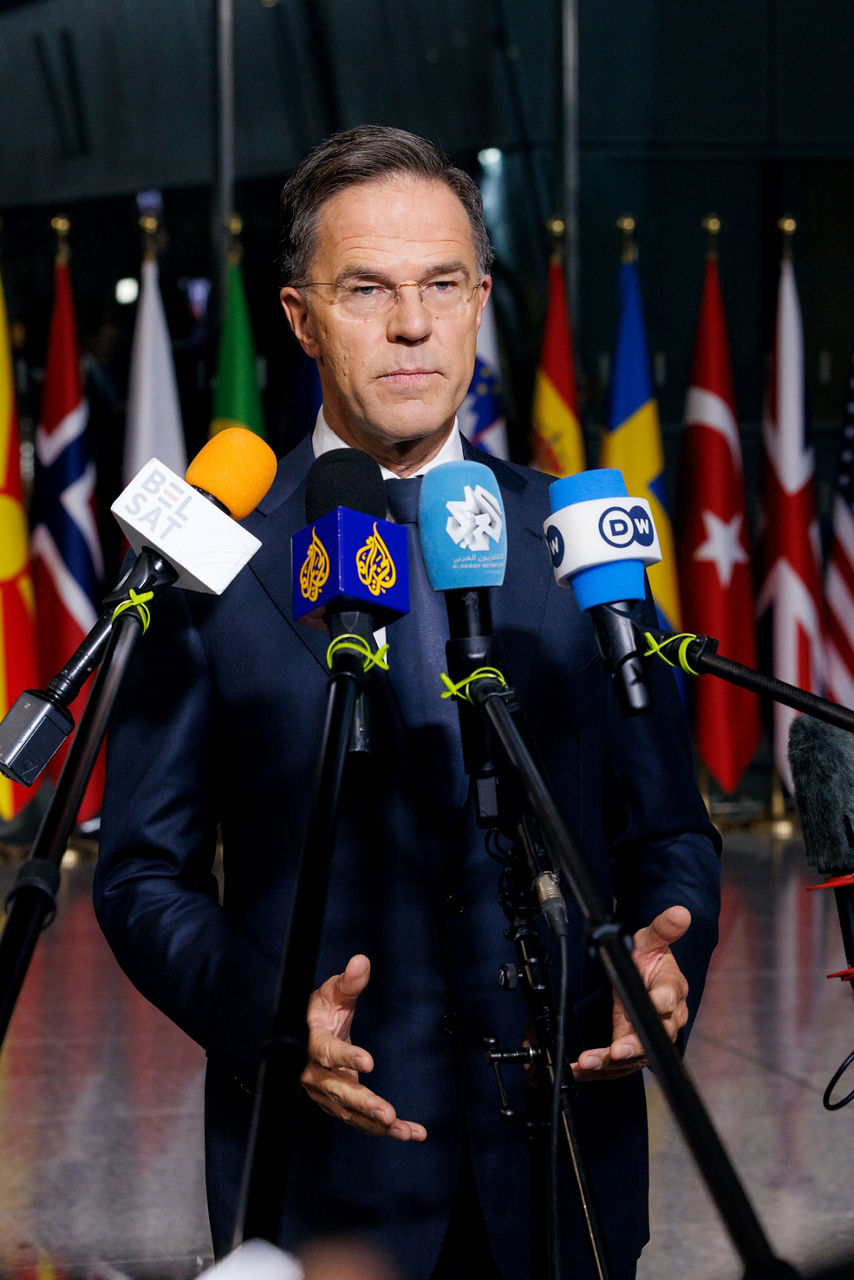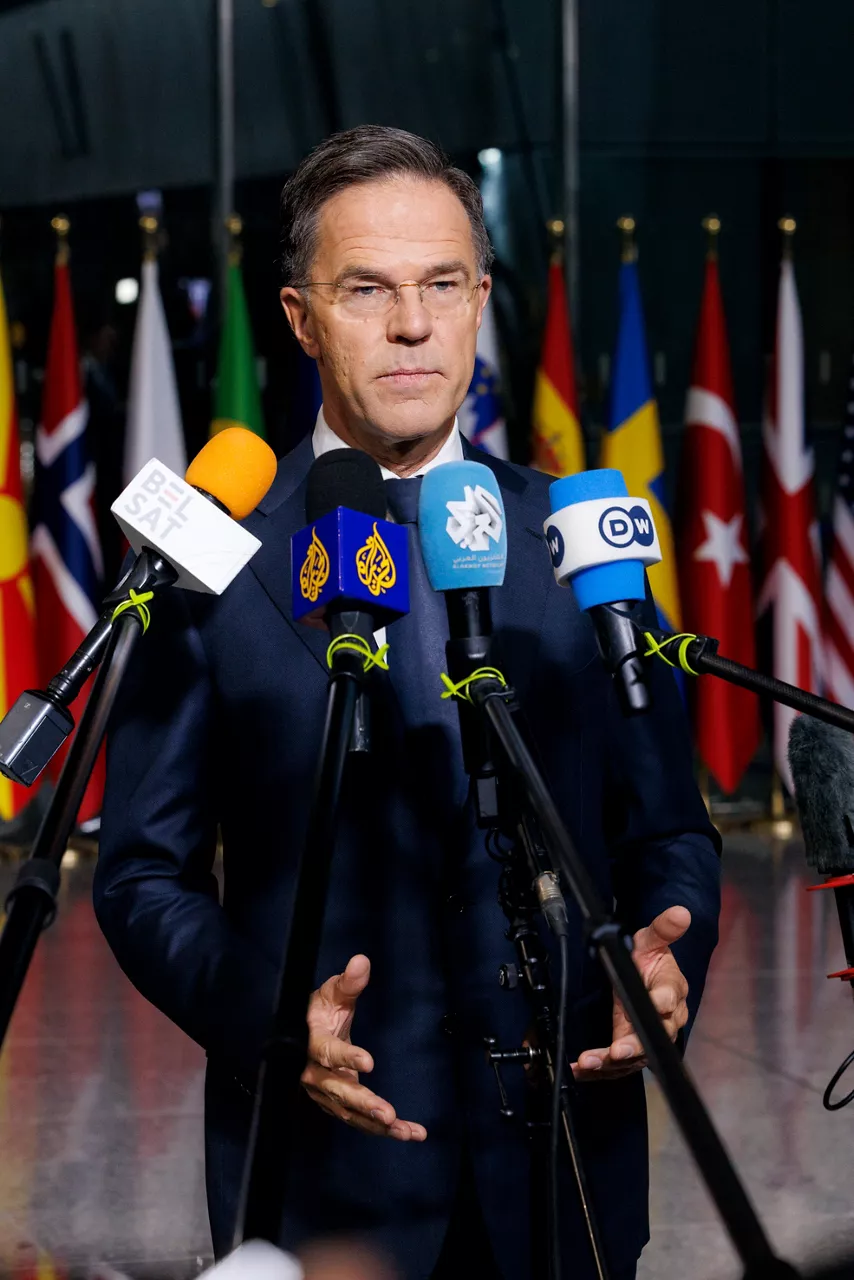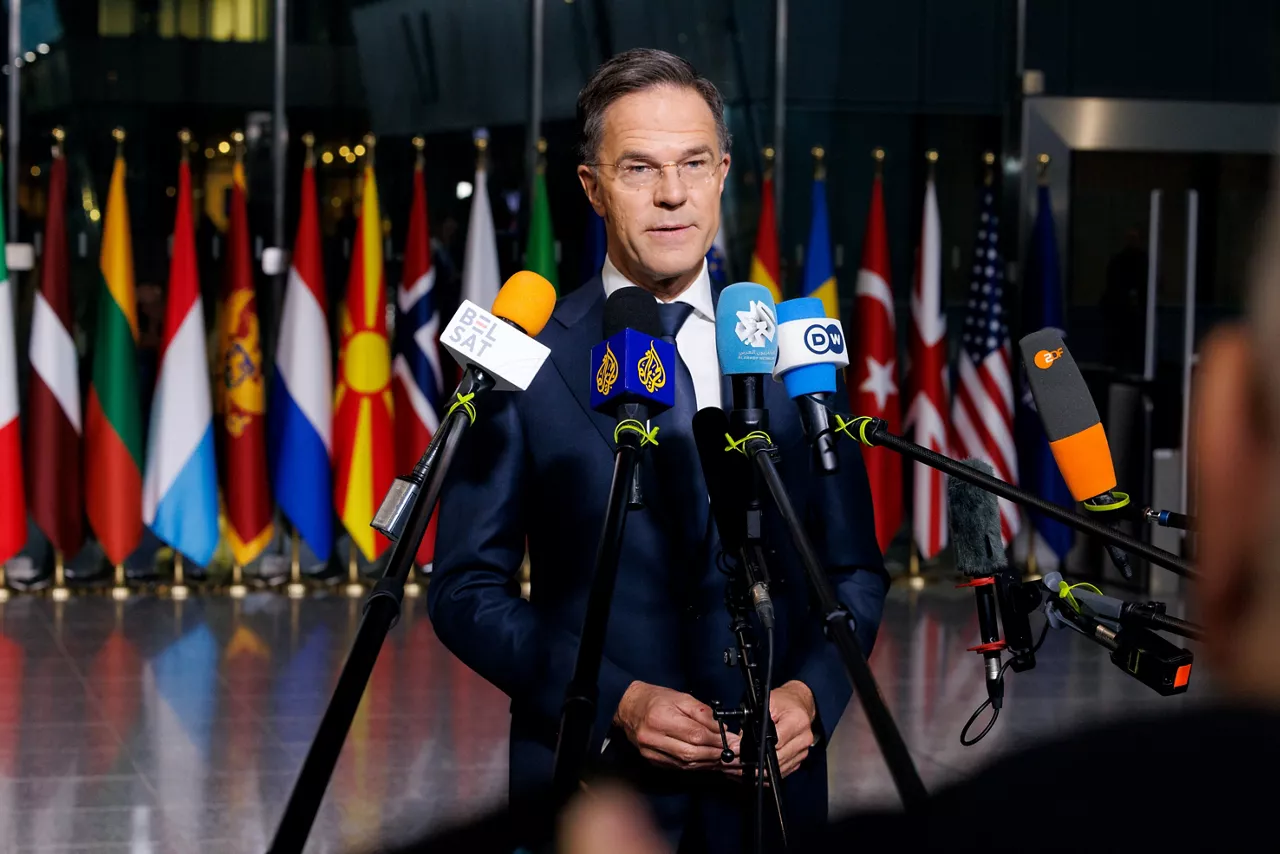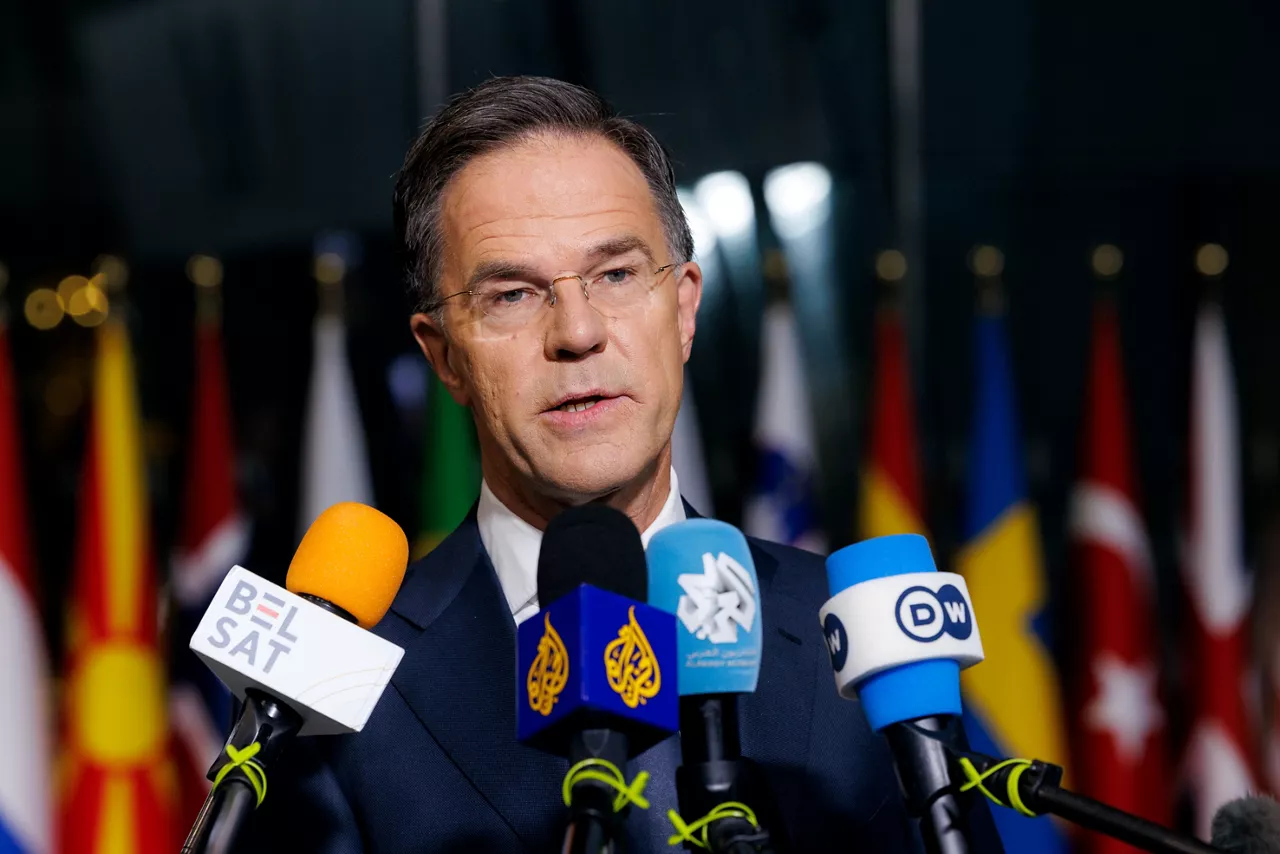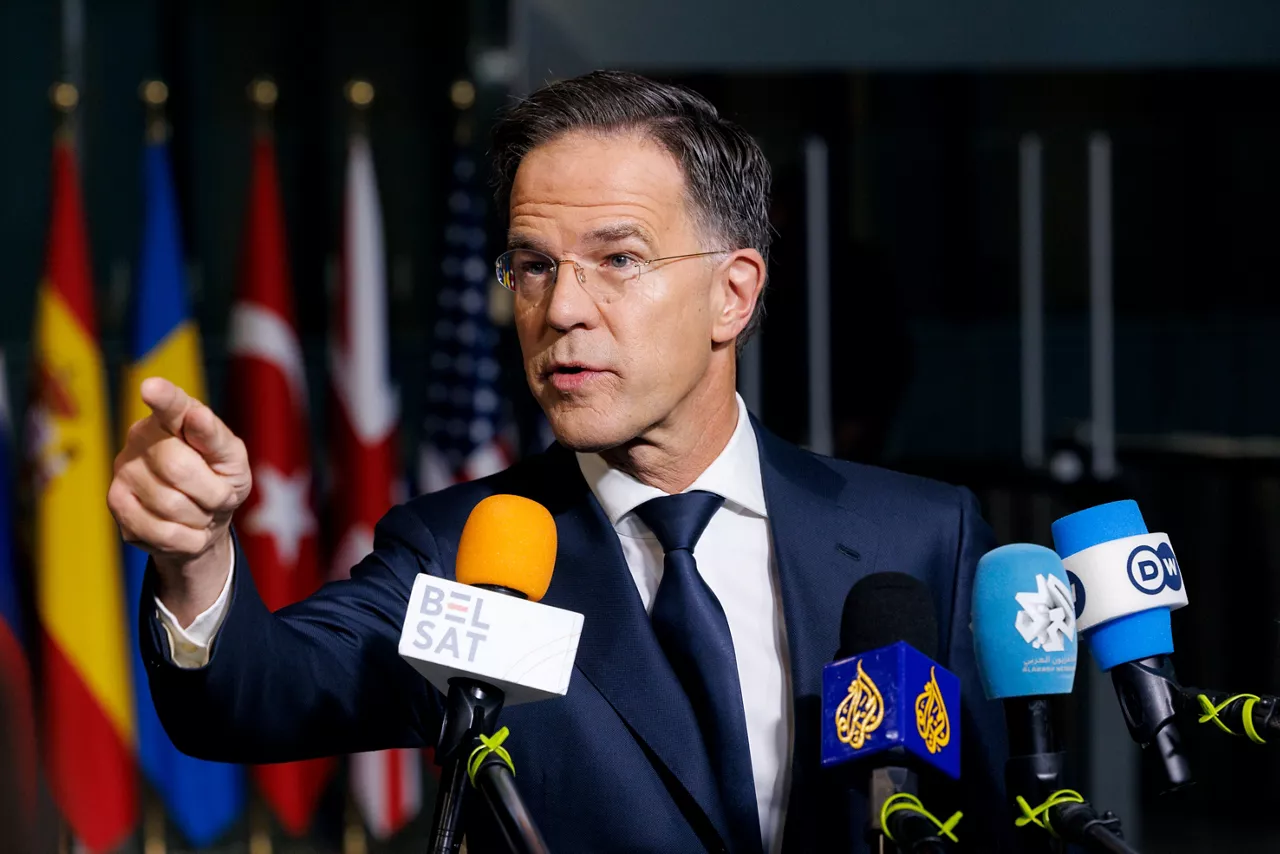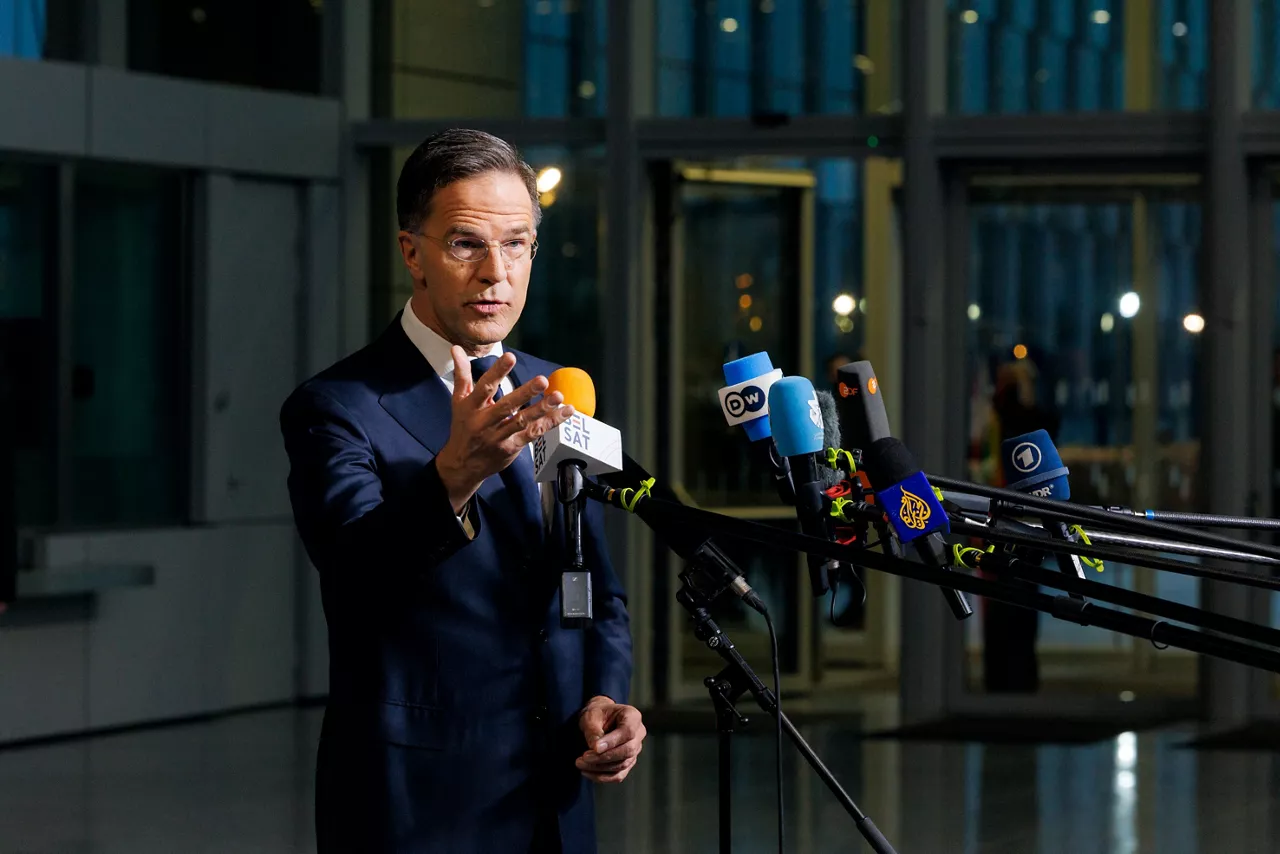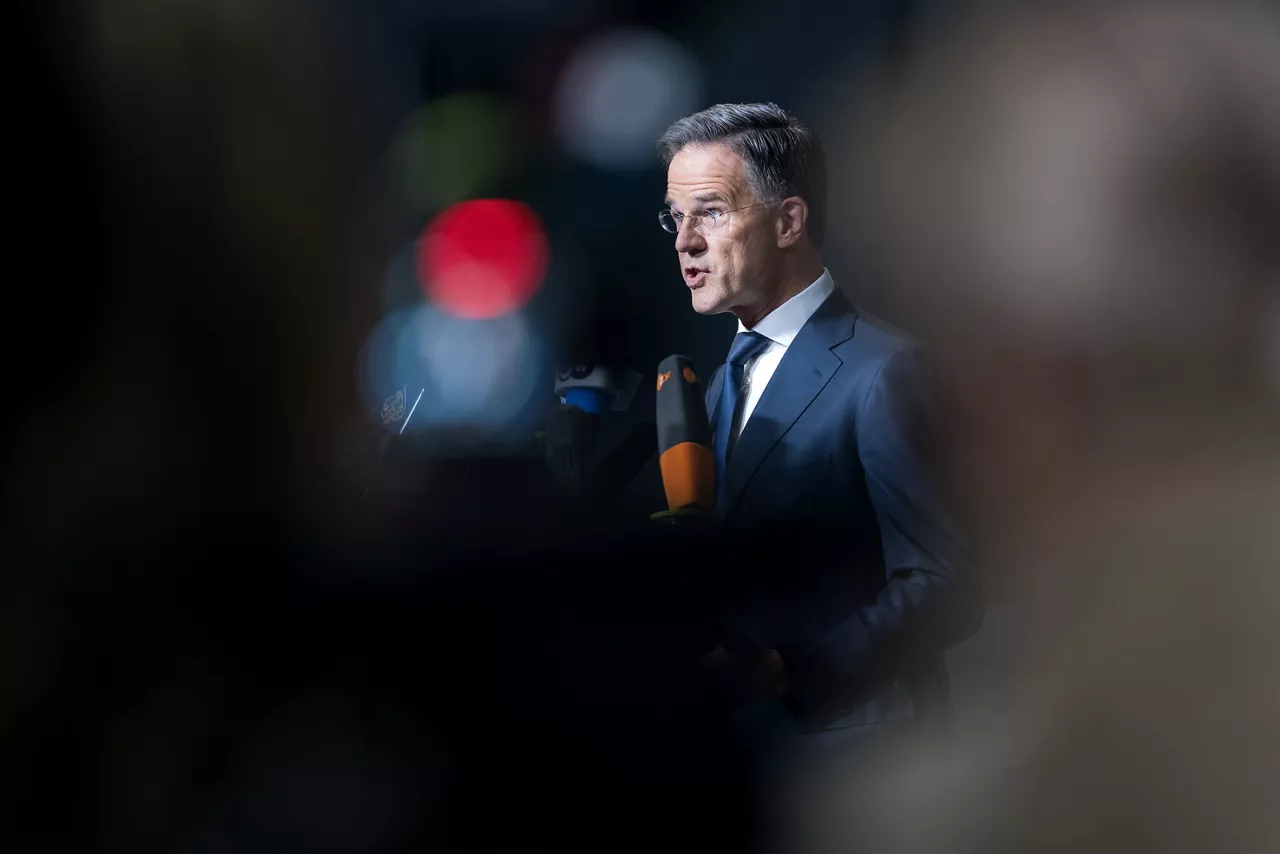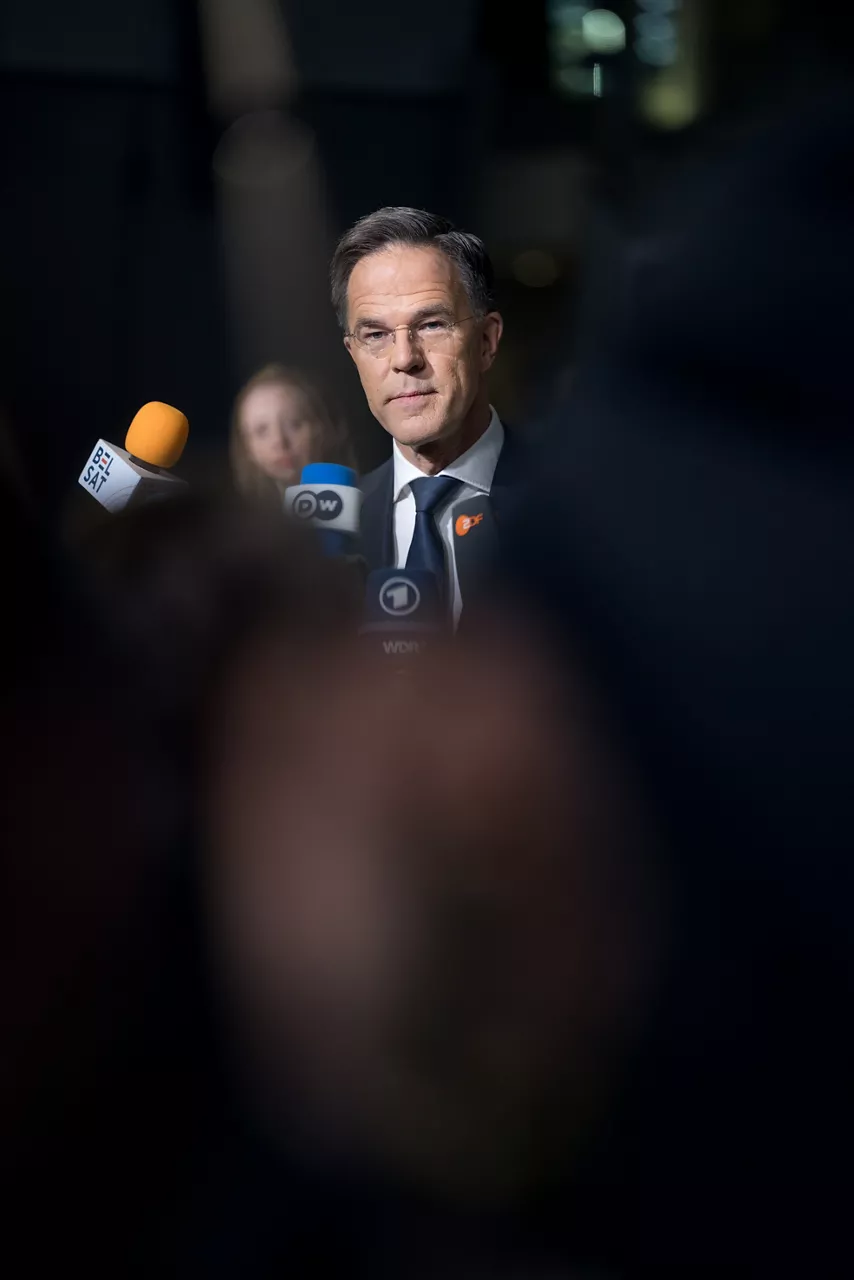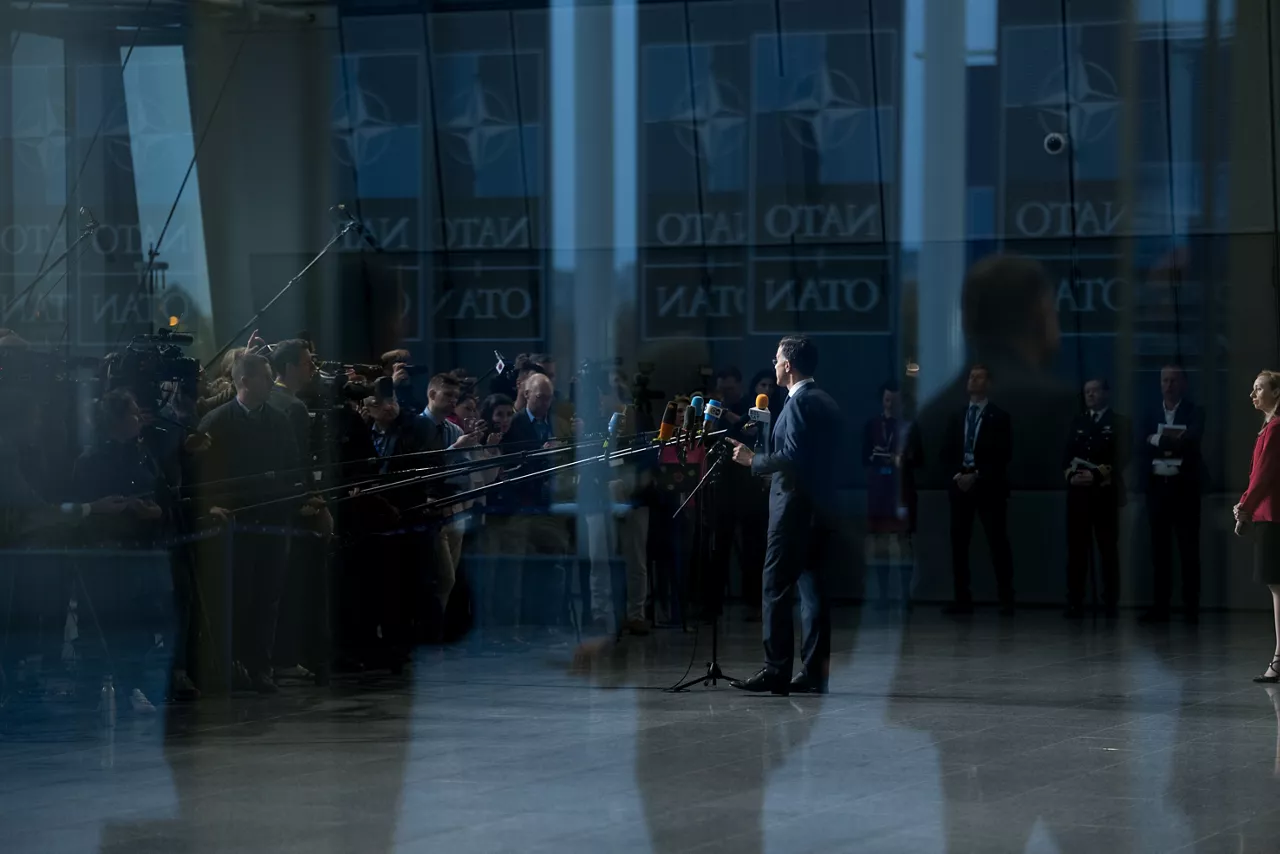Download NATO’s broadcast-quality video content free of charge

Log in
NATO MULTIMEDIA ACCOUNT
Access NATO’s broadcast-quality video content free of charge

Check your inbox and enter verification code
You have successfully created your account
From now on you can download videos from our website
Subscribe to our newsletter
If you would also like to subscribe to the newsletter and receive our latest updates, click on the button below.
Enter the email address you registered with and we will send you a code to reset your password.
Didn't receive a code? Send new Code
The password must be at least 12 characters long, no spaces, include upper/lowercase letters, numbers and symbols.
Your password has been updated
Click the button to return to the page you were on and log in with your new password.
(As delivered)
So good morning. Good to see you all, and today will be an important meeting with the Defence Ministers. We had an extremely successful Summit in The Hague, we agreed, as you know, to ramp up defence spending to 5% including 3.5[%] on core defence and 1.5[%] on all the important defence related issues.
It was a Summit where we also discussed the defence industrial production, to ramp that up and to make sure that Ukraine is as strong as possible, staying in the fight. And today, we will touch on all those issues, and of course, on what happened just recently - the drones. How to make sure that we can do even more to protect NATO against also these new developments. So this will be an important day.
We will have Ukraine during the day in the lunch, we have a NATO-Ukraine Council, where Denys Shmyhal , the Defence Minister will be participating, and also Kaja Kallas - the EU High Representative. And then we will have later today - after I've seen you in the press conference, I look forward to that of course - we will have a Ukraine Defence Contact Group where we will discuss ramping up the support for Ukraine even further under the leadership of the two Defence Ministers of Germany and the United Kingdom, Boris Pistorius and John Healey.
And one of the issues we’ll be discussing is this new programme, which we launched only in August, the programme where the United States is again delivering essential, lethal and non-lethal military support to Ukraine, paid for by Allies, already 2 billion committed. And I have every reason to assume today that many other countries will sign up. This is crucial stuff, including air defence systems and particularly interceptors, important for Ukraine to make sure that their civilian population, their crucial infrastructure, is as much protected as possible against the continuous Russian onslaught.
So with that, happy to answer a few questions, and then again, we'll see each other later today in a press conference.
Reporter
…Drone wall helpful? Or is it doubling up on NATO's efforts?
NATO Secretary General, Mark Rutte
I can assure you that the EU and NATO are really working very well together, there is no doubling at all. Ursula von der Leyen - the President of the European Commission, myself, the relevant Commissioners, including Kubilius and of course, Kaja Kallas and the others, we are all making sure that we make use of the strengths of the two organisations. And NATO is good at the hard stuff, which is the standard setting, the capabilities, the military side and the EU has the enormous soft power of the internal market, the enormous soft power of making sure the money is there, making sure that the nations in the EU are aligned. And this combination is crucial to work together. It's one of the things the Russians try to divide, they are not successful, we are working very well together.
Reporter
What makes you so confident that there are going to be big announcements on the PURL initiative from the Europeans today? So far, there hasn't been a lot of movement.
NATO Secretary General, Mark Rutte
There has been a lot. We have seen immediately when we launched the programme, seen the Germans and the Dutch and the Canadians and the Swedes and the Danes and the Norwegians stepping up. But I assure you - but maybe I can tell you a little bit more during the presser - that today other countries will come forward, I'm really positive. Of course, part of my task as Secretary General, and this has been the case for my predecessor, for me, is to make sure we keep the support for Ukraine as strong as possible. And I'm really proud that as a collective Alliance, we are able to do that, to make sure that Ukraine stays in the fight as strong as possible.
Reporter
Do you believe now is the time that Ukraine will receive longer-range offensive missiles?
NATO Secretary General, Mark Rutte
Well, this is not an issue to be discussed today, because that is a bilateral question. So what nations, yes or no, want to support - supply to - Ukraine, but it's not on the table today.
Reporter
What about Serbia's President Vučić? About the declaration that it will have a war? He declared that nowadays and Kosovo's institutions condemn that.
NATO Secretary General, Mark Rutte
We follow all the events closely on Western Balkans. Maybe it might also come up as an issue generally, but I'm not sure that it will be so specific as in your question.
Reporter
…Red lines regarding Russia after drones in European sky.
NATO Secretary General, Mark Rutte
Well, there have been many questions about whether NATO is capable or not to make sure that if something happens in our airspace, we can act decisively if necessary, and we can, I can really assure you. The problem is this - that some are saying, not inside NATO, but sometimes in the public debate - that if a plane, a Russian plane, be it intentional or not, enters NATO airspace, that anyway, you have to take it down. And I don't agree. I think you have to make sure that you are absolutely convinced whether yes or no it is posing a threat. If it is posing a threat, we can do everything needed to make sure the threat will not materialise. But if it is not posing a threat, a strong Alliance - and NATO is so much stronger than Russia - we are infinitely more capable, then of course, our role is to make sure that that plane drifted outside of its airspace, into NATO airspace, will gently be guided outside our airspace and then make clear to the Russians stop doing this. There was a question from a Ukrainian, yes.
Reporter
Secretary General, is there a need to make any NATO-level decision on shooting down the drones or whatever interferes the airspace? Or can any individual member state like Poland do it on their own, without looking for any sort of permission from NATO? Thank you.
NATO Secretary General, Mark Rutte
Let me, through you - and this is a Ukrainian question - but let me use your question to tell the Russians that if they intentionally will try anything against NATO, we have everything in place and all the authorities to make sure we can defend every inch of NATO airspace and NATO territory. When it comes to the drones, obviously, learning from you, from Ukraine, we are making sure that we will implement as soon as possible the latest technologies. This is not new, it’s all, you always have to adapt. But when you look at what happened in Poland and in Estonia, I think we acted exactly as you expect us to react, which is when it comes to drones, to make sure that drones posing a threat were shot down. And when it comes to the MiG-31 into Estonian airspace to assess whether they were a threat, they were not. So they were guided outside the airspace by Italian F-35s and this is exactly how we trained and prepared. And hey guys, this is not new. We do this now for 60, 70 years. We did it with the Soviets, with the Russians. So some of this debate I'm seeing in the public sphere about ‘does NATO have the authorities?’ Yes, we have. And obviously you every day have to make sure you adapt to the latest technologies. Final question, and then I'll see you this afternoon. Sir.
Reporter
Allied military support has dropped…
NATO Secretary General, Mark Rutte
Ah, I was thinking of the guy behind you but you can also ask a question.
Reporter
Thank you. Allied military support has dropped considerably in the course of the summer. How do you explain and are you concerned?
NATO Secretary General, Mark Rutte
It has not. When you look at this year, it is more or less, on average, with last year all the essential stuff going and I'm proud of this because we thought - the Russians thought probably when they started this war first - they thought they would win it in three weeks. Now we are in year four. They have lost 1 million people - dead or seriously wounded. Only gained this year, very incremental successes, very small size of Ukrainian territory, again, 1 million people lost or seriously wounded. And the support for Ukraine last year, this year continues to flow, lethal and non-lethal. Thank you so much, and I'll see you later today.

